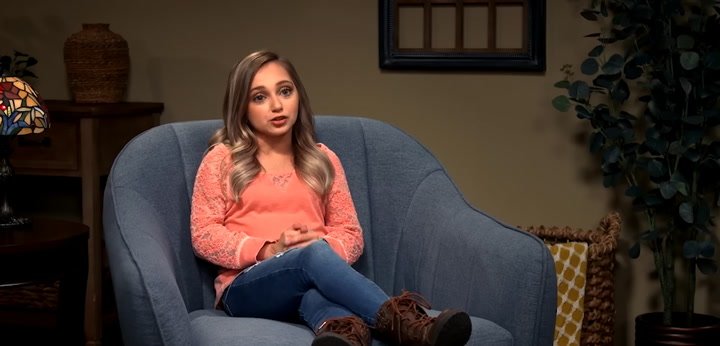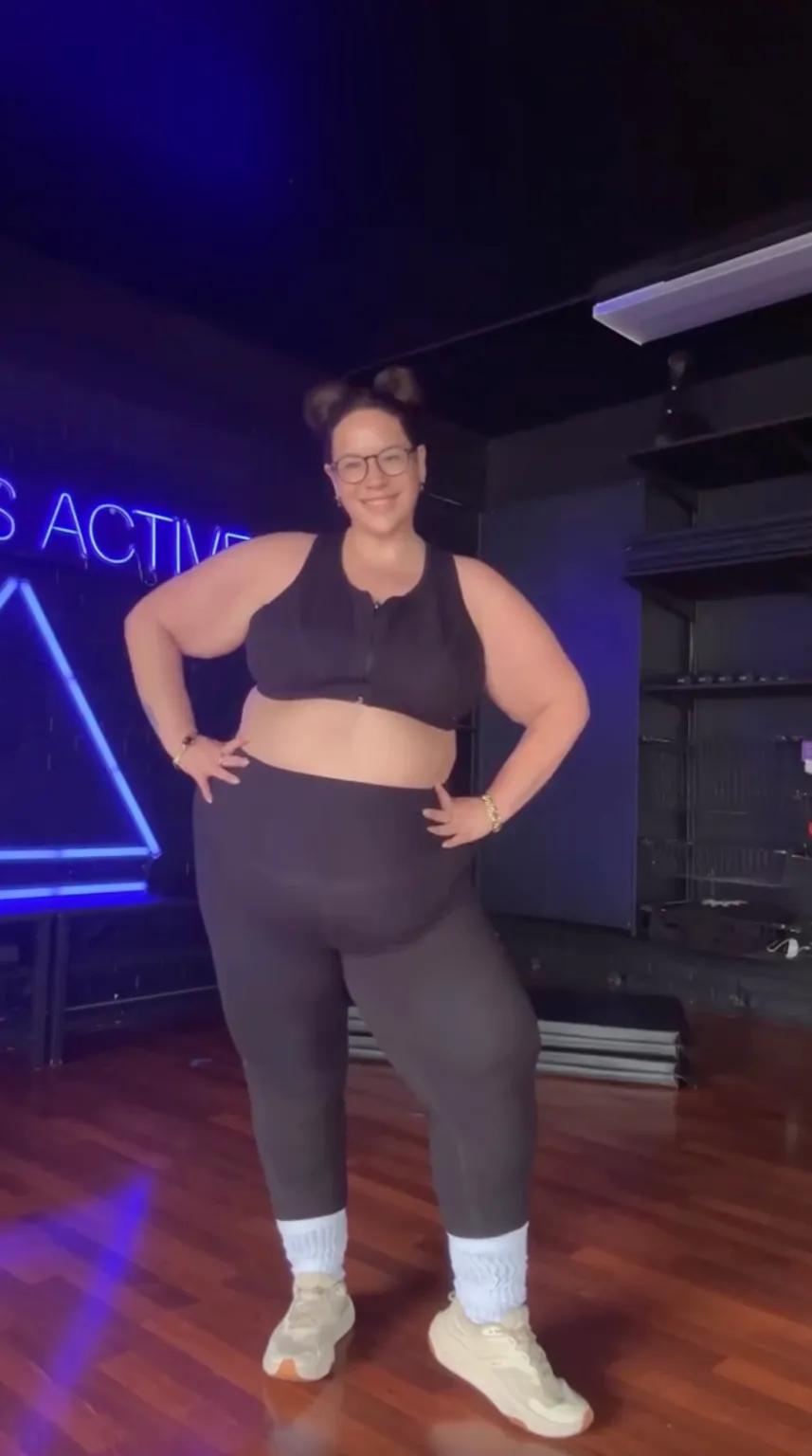The ‘warm, little lady’ who became a bridal industry ICON: Fashion mogul and Holocaust survivor Hedda Kleinfeld dies at 99 – 80 years after launching famed store that re-defined wedding style… and spawned beloved TLC series Say Yes to the Dress
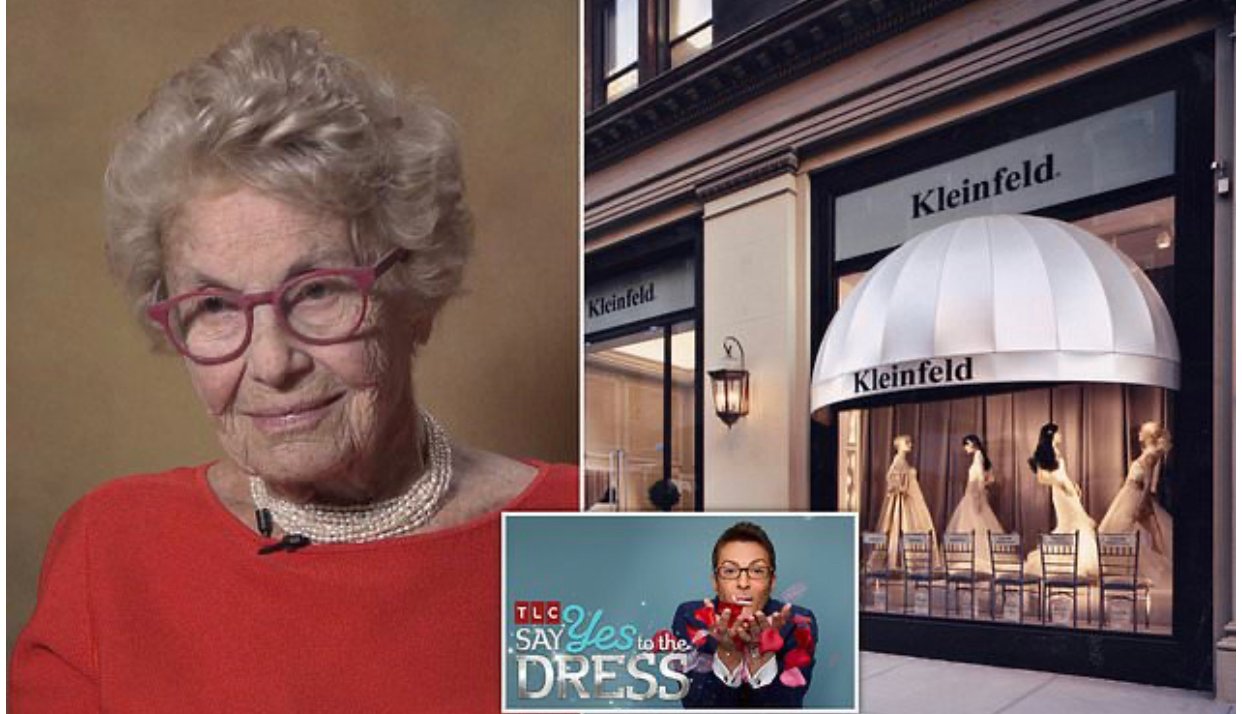
Bridal mogul and Holocaust survivor Hedda Kleinfeld Schachter has tragically passed away at age 99, after completely re-defining the wedding dress industry.
Hedda co-founded the bridal empire Kleinfeld back in 1941, which went on to become one of the biggest wedding dress companies on the planet – and it now helps tens of thousands of women find the perfect gown for their big day every year.
And its immense success is mostly attributed to Hedda, who would spend hours scouring showrooms to find new dresses to feature in the shop and would personally approach top designers and encourage them to start making wedding gowns, WWD reported.
Hedda’s fierce determination also transformed wedding dress shopping into the experience that we all know today.
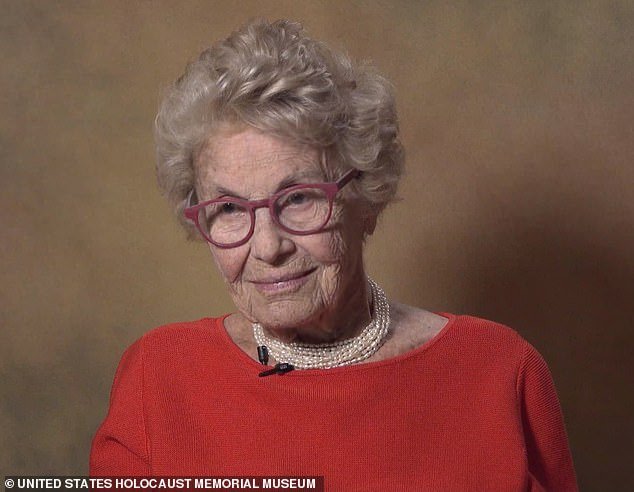
Bridal mogul and Holocaust survivor Hedda Kleinfeld Schachter has tragically passed away at age 99, after completely re-defining the wedding dress industry
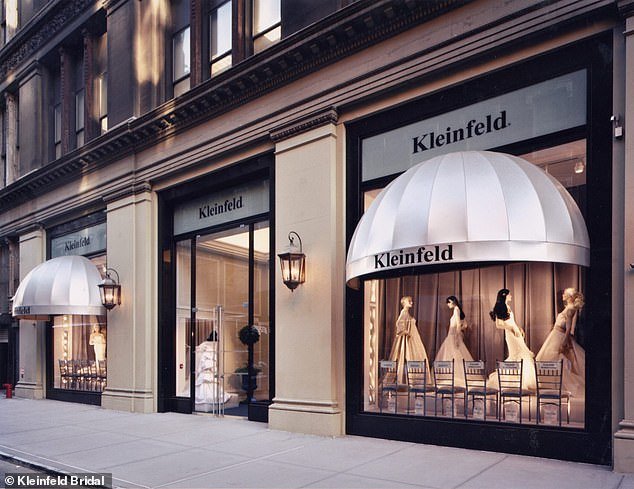
Hedda co-founded the bridal empire Kleinfeld back in 1941, which went on to become one of the biggest wedding dress companies on the planet
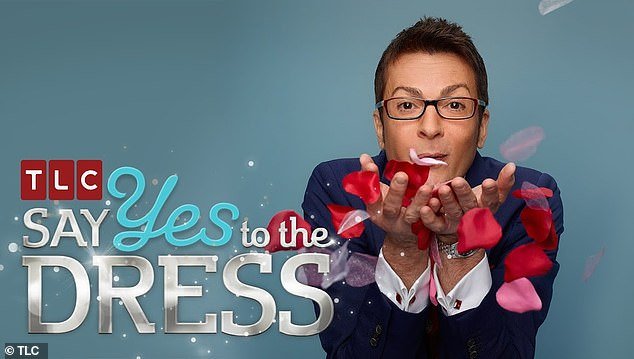
Kleinfeld famously serves as the location for the popular TLC show Say Yes to the Dress – which documents various women on the hunt for the perfect wedding gown at the store
‘The by-appointment business was established with the customer experience at the forefront and employees were trained to tend to shoppers like the princesses they envisioned,’ the outlet said.
‘Playing up the spectacle aspect of wedding dress shopping, Kleinfeld amped up the customer service under Hedda’s arched critical eye, whisking individual brides to their respective dressing rooms, having bridal consultants suggest and retrieve immaculate display gowns and then veils and headpieces from an elaborate encased glass display, enlisting fitters to cinch waistlines and, if need be, calling in Hedda for an expert opinion.’
Kleinfeld also famously serves as the location for the popular TLC show Say Yes to the Dress – which documents various women on the hunt for the perfect wedding gown at the store.
Born in Vienna in 1924, Hedda and her family were forced to flee their home in Austria in 1939 amid World War II after her father and uncle were detained in Dachau.
They ‘narrowly escape the Holocaust’ and found refuge in Cuba. But a year later, they had to move again, and they decided to head to America, where they eventually settled in Brooklyn.
‘Being a Holocaust survivor cultivated a strong sense of resilience and optimism that resonated through her nearly century-long life,’ WWD said.
Her father, Isadore, went on to open a fur store in their neighborhood. He hired Hedda’s future husband, Jack Schachter, and the two soon fell in love.
Together, they acquired the single storefront shop in Brooklyn, New York, from Isadore in 1941, and decided to turn it into a place that sold gowns for ‘special occasions.’
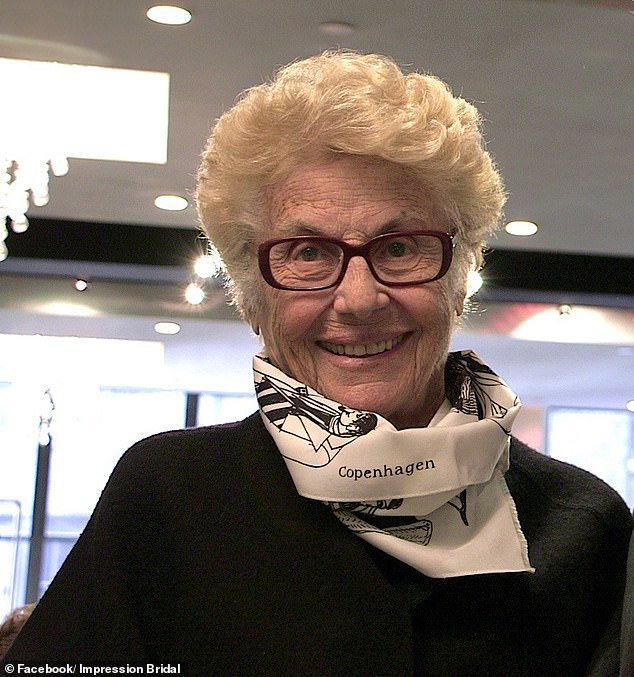
Its immense success is mostly attributed to Hedda (seen in 2013), who would spend hours scouring showrooms and would personally approach top designers, WWD reported
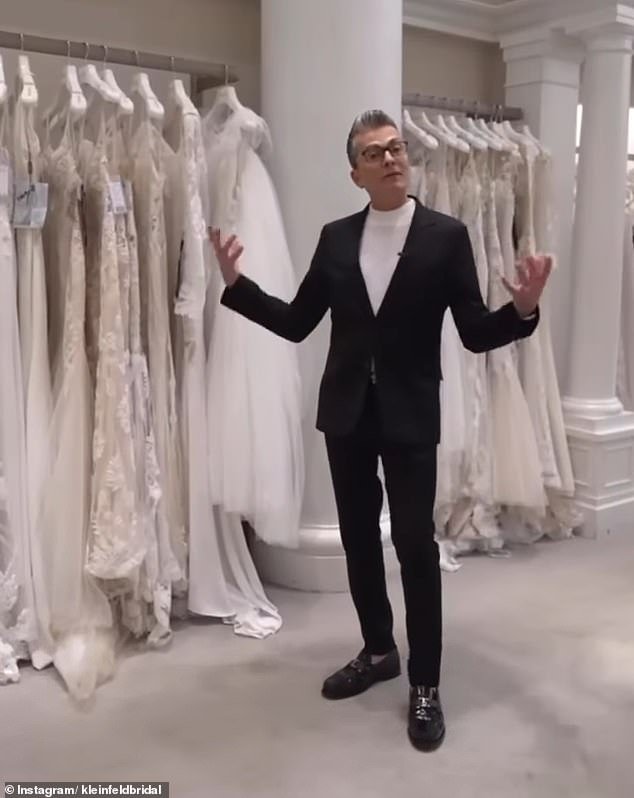
Hedda’s fierce determination also transformed wedding dress shopping into the experience that we all know today’
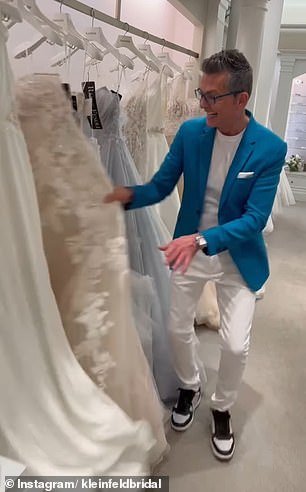
The by-appointment business was established with the customer experience at the forefront and employees were trained to tend to shoppers like princesses,’ the outlet said’
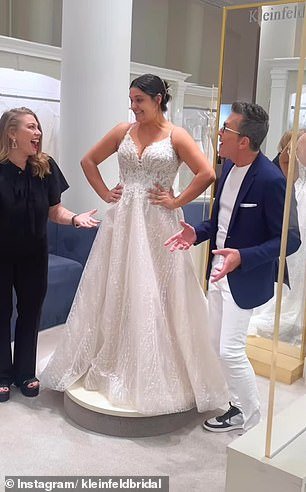
The by-appointment business was established with the customer experience at the forefront and employees were trained to tend to shoppers like princesses,’ the outlet said
In 1979, after nearly 20 years in business, the couple decided it was time to focus primarily on wedding dresses – and Hedda took the job of helping women find something to wear for their nuptials very seriously.
‘You are creating a heroine on a stage,’ she told WWD in a 1985 interview. ‘The bride is on display.
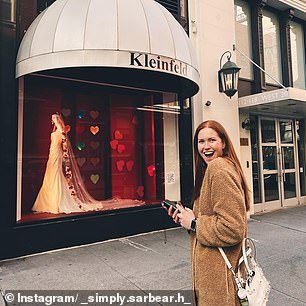
Born in Vienna, Hedda and her family were forced to flee their home in Austria in 1939 amid World War II, finding refuge in Cuba. A customer is seen entering Kleinfeld
‘She has to be put together beautifully, and we have to edit and guide the customer, and be able to picture her under the chandelier or in a church. She has not only got to look good in the mirrors of the fitting room.’
The Bridal Council stated in a memorial for her, ‘Hedda was a legend because she took the sleepy, respectable field of nuptial adornments and created a fashion-driven world of dreams.’
By 1990, the 30,000-square-foot shop was bringing in $20 million annually, but in 1991, the pair opted to sell the store to businessman Michel Zelnik, and nine years after that, it was bought by its current owners, Mara Urshel, Ronnie Rothstein, and Wayne Rogers.
And while Hedda no longer owned the bridal store after that, it was the tone that she set that continued inside of it for many more years to come – and eventually trickled into other wedding dress shops.
‘She really built Kleinfeld not only as an iconic name but she left an incredible mark on the whole industry with her vision,’ Mara gushed to WWD.
‘When she saw that the bridal industry was safe, she started visiting every single designer in the United States and all over the world to find new dresses that created the beginning of how we see the bridal industry today with many designers and a lot of fashion that appeals to many different kinds of brides.’
Hedda and her husband, Jack, acquired the single storefront shop in Brooklyn, New York, from Isadore in 1941, and decided to turn it into a place that sold gowns for ‘special occasions’
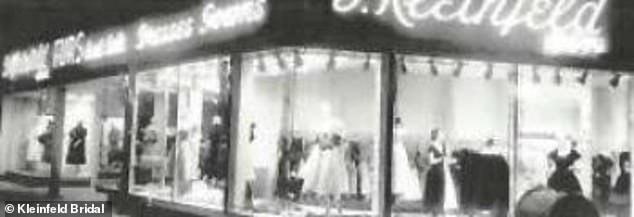
In 1979, after nearly 20 years in business, the couple decided it was time to focus primarily on wedding dresses
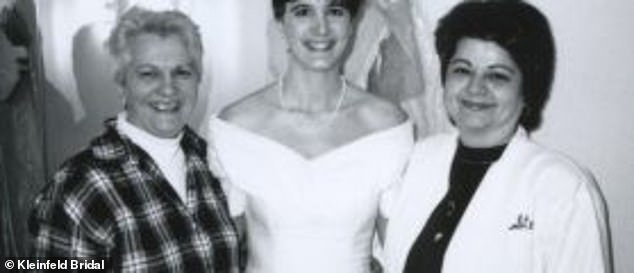
By 1990, the 30,000-square-foot shop was bringing in $20 million annually, but the pair opted to sell the store to current owners, Mara Urshel, Ronnie Rothstein, and Wayne Rogers
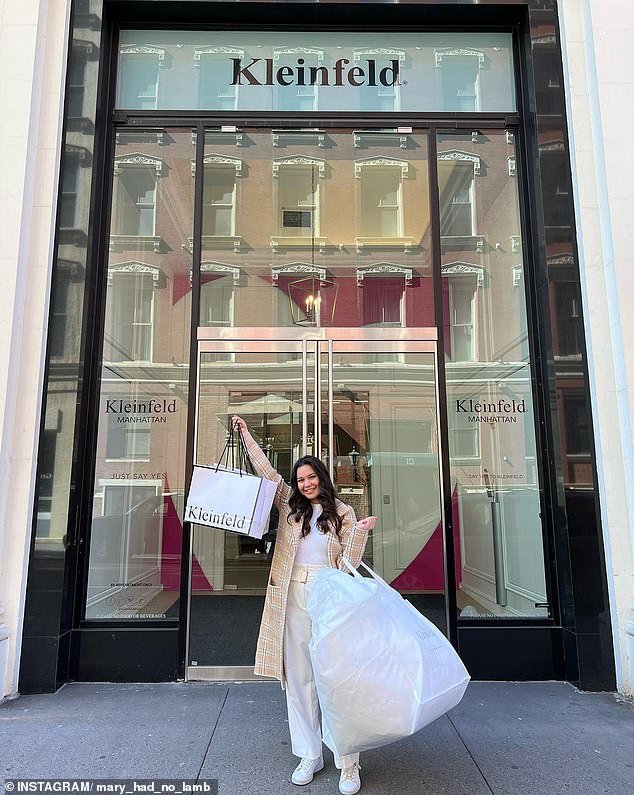
In 2005, Kleinfeld relocated to its current location on 20th street in Manhattan – a 35,000-square-foot store with 28 dressing rooms, 17 fitting rooms, and 1,500 designer dresses
One bridal designer, Mark Ingram, explained that Kleinfeld’s ‘impeccable customer service and selection’ created ‘a captive audience.’
He added: ‘There was no way a bride was leaving there without buying a dress.
‘Having an onsite owner and manager, as she was, handpicking the dresses makes a big difference in how the store is perceived and run. That is especially true in bridal because it is so hands-on and so personal
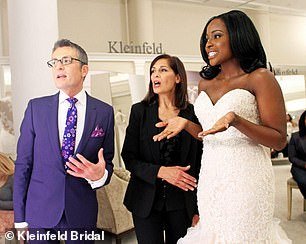
A year after that, Say Yes to the Dress premiered. The show was immensely popular, and it has now been going on for a whopping 19 seasons
‘[Hedda and Jack] had so much power in the industry, when they were the bona fide owners of Kleinfeld into the ’90s, that their presence was always requested.
‘She was a warm, little, lovely lady. Unassuming, you would never know that she was such a powerful industry icon.’
In 2005, Kleinfeld relocated to its current location on 20th street in Manhattan – a 35,000-square-foot store with 28 dressing rooms, 17 fitting rooms, 1,500 designer dresses, and a staff of 250 employees.
A year after that, Say Yes to the Dress premiered. The show was immensely popular, and it has now been going on for a whopping 19 seasons.
Current Kleinfeld co-owner Mara confirmed the sad news of Hedda’s passing to WWD, revealing that she died on Wednesday at Mount Sinai Hospital in Manhattan, a day after undergoing colonic surgery.
While her husband passed away 2008, Hedda is remembered by her two sons, Ronald and Robert.

